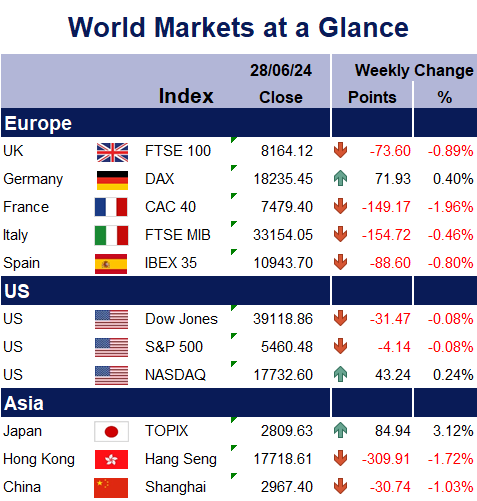As you can see from the accompanying table, markets were broadly lower this week.
UK markets struggled to gain traction despite economic data showing the British economy grew by 0.7% in Q1 2024, up from the initial 0.6% estimate. This marks the strongest expansion in over two years, ending last year’s recession. The services sector led the growth, with an estimated increase of 0.8%. The revised GDP figures indicate a stronger recovery, fuelling market optimism.
The UK general election is scheduled for Thursday, July 4th. Polls suggest the Labour party is likely to win, having maintained a strong lead over the Conservatives. A Labour majority is not expected to cause significant market disruption, as markets have had time to adjust to this possibility.
US stocks surged on Friday before closing lower. The release of May’s Core Personal Consumption Expenditures (PCE) index, the Federal Reserve’s preferred measure of inflation increased by 0.1% from the previous month, slightly below April’s 0.2% rise. This modest uptick is seen as a sign that inflationary pressures are easing, bolstering traders’ hopes that the Fed might lower interest rates later this year. The 0.1% increase in the Core PCE price index marks the smallest monthly rise since November 2023, a slowdown from the 0.3% gains seen in the prior three months. Annually, core PCE inflation fell to 2.6% in May from 2.8% in April.



